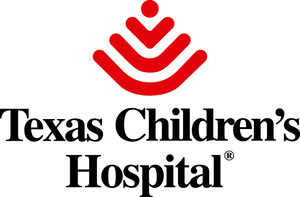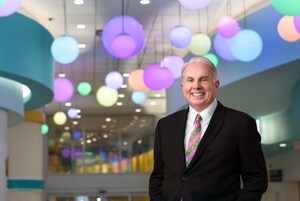Texas Children's World-Renowned Histiocytosis Program Celebrates 10-year Anniversary
HOUSTON, Dec. 16, 2010 /PRNewswire-USNewswire/ -- December marks the 10-year anniversary of the formation of the world-renowned Histiocytosis Program at Texas Children's Cancer Center and Hematology Service (TCCC&HS), a joint center of Texas Children's Hospital and Baylor College of Medicine. Histiocytic Diseases, disorders of the immune system that are difficult to diagnose and define, include Langerhans Cell Histiocytosis (LCH), Hemophagocytic Lymphohistiocytosis (HLH) and other even more rare conditions. While these are rare diseases, they occur with similar frequency as pediatric lymphomas that receive significantly more public attention and research funding.
(Photo: http://photos.prnewswire.com/prnh/20101216/DC18873)
Langerhans Cell Histiocytosis (LCH) arises when misguided immune cells form lesions and can affect almost any organ in the body. Patients with mild forms of the disease can suffer from lifelong complications, and patients with more disseminated disease are at very high risk of death. Improving outcomes for children and adults with LCH depends on better understanding of the disease.
Hemophagocytic Lymphohistiocytosis (HLH) arises when the immune system fails to turn off an inflammatory response, like a furnace without an off switch. The unrestrained immune cells cause multi-system organ failure that is almost universally fatal without therapy. While understanding of the biology of HLH has improved significantly over the past decade, it remains a tremendous clinical challenge. Even when the disease is recognized and treated according to the best known therapy, survival is less than 60%.
Early in his career, Dr. Kenneth L. McClain recognized the need to improve our understanding and clinical approaches to these diseases. At Texas Children's, he and Dr. David Poplack, director of the TCCC&HS, made these patients a priority by developing the Histiocytosis Program with the goal of providing the best care available for children and adults, and ultimately to find cures for these diseases. When the Program began, Dr. McClain was seeing 20-30 patients per year, largely by himself. Today, a team of dozens of interdisciplinary specialists at Texas Children's including surgeons, neurosurgeons, ear-nose-throat specialists, radiologists, nurse practitioners and nurses are working together to care for over 120 new patients annually and follow more than 400 patients with these rare disorders. Additionally, they respond to hundreds of phone consults and e-mails from families around the world. The Texas Children's Histiocytosis Program is now the largest program of its type in the world.
"When someone finds out they have a rare disease, they want to go where their condition isn't uncharted territory," says McClain. "They want to know that the doctors have seen patients like them in the past, and that they've been successful in treating those patients. Just meeting some of the other patients here at TCCC&HS who are dealing with the same disease makes a huge difference in terms of putting people at ease. At Texas Children's, Histiocytosis is not a rare disease."
In addition to being Program Director for the Histiocytosis Program, Kenneth L. McClain, M.D. Ph.D., is the past president of the Histiocyte Society and has been treating patients with Histiocytic disorders for over thirty years. Carl Allen M.D., Ph.D. joined Dr. McClain in 2006 to help expand the Histiocytosis Program. Through advanced clinical experience and research of Histiocytic diseases, the Texas Children's Histiocytosis Program has established clinical and biologic correlations that no other center in the world has accomplished. Drs. McClain and Allen, who jointly oversee the Program's Research, are constantly working towards developing more effective and innovative therapies for these diseases and offer the opportunity for patients to enroll in clinical studies. Over the past 10 years, the team has authored over 30 scientific articles as well as multiple reviews and book chapters. They have also given clinical and scientific talks a dozens of venues from rural community hospitals to plenary sessions of international scientific meetings in their mission to educate colleagues about these illnesses. Over the next ten years, their goal is to find and implement cures for their patients. In addition to continuing laboratory research projects, the team is developing several new clinical trials.
"We're dedicated to our patients with Histiocytosis, and truly invested in their future," said Dr. McClain, who recently accompanied one patient on a 50-mile bike ride to help him achieve his Boy Scout eagle award. "Because we constantly see new patients who are going through treatment for Histiocytic disorders, we're well aware of their struggles, and are able to provide new hope, and new possibilities. It's amazing how far we've come in the past ten years."
To learn more about Histiocytosis, make an appointment, participate in research, or support the Texas Children's Histiocytosis Program, please visit the program website, www.txccc.org/histiocytosis.
To learn more about how research is leading to a better understanding of Histiocytosis, please visit: http://www.bcm.edu/news/item.cfm?newsID=3189.
About Texas Children's Cancer Center and Hematology Service
As an international leader in pediatric cancer and hematology research and treatment, Texas Children's Cancer Center and Hematology Service is dedicated to providing novel therapies and family-centered care to children from infancy through young adulthood with cancer and blood disorders – from the most common to rare. Texas Children's Cancer Center and Hematology Service treats more childhood cancer and hematology patients than any other program in the U.S., with patients coming from 35 states and 26 countries around the world. Learn more at www.txccc.org.
About Texas Children's Hospital
Texas Children's Hospital is committed to a community of healthy children by providing the finest pediatric patient care, education and research. Renowned worldwide for its expertise and breakthrough developments in clinical care and research, Texas Children's is nationally ranked in all ten subspecialties in U.S. News & World Report's list of America's Best Children's Hospitals. Texas Children's also operates the nation's largest primary pediatric care network, with more than 40 offices throughout the greater Houston community. Texas Children's has embarked on a $1.5 billion expansion, Vision 2010, which includes the Jan and Dan Duncan Neurological Research Institute™, a comprehensive obstetrics and gynecology facility focusing on high-risk births and a community hospital in suburban West Houston. For more information on Texas Children's Hospital, go to www.texaschildrens.org. Get the latest news from Texas Children's Hospital by visiting the online newsroom and on Twitter at twitter.com/texaschildrens.
Contact: Nicole Truscinski |
|
212-677-2748 |
|
SOURCE Texas Children's Hospital
WANT YOUR COMPANY'S NEWS FEATURED ON PRNEWSWIRE.COM?
Newsrooms &
Influencers
Digital Media
Outlets
Journalists
Opted In





Share this article